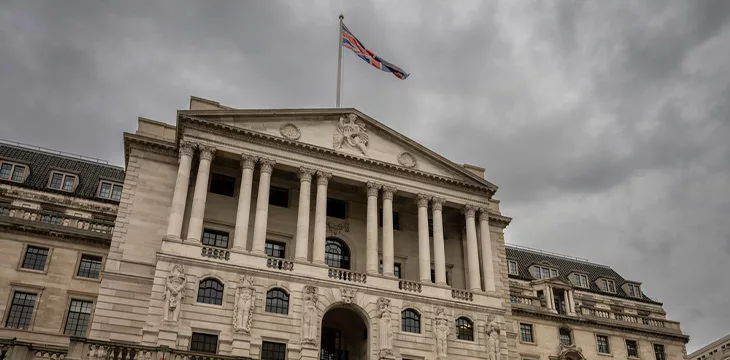|
Getting your Trinity Audio player ready...
|
The head of the Bank of England (BoE) has told a United Kingdom Parliament Treasury Committee meeting that “using Bitcoin as a payments method is pretty inefficient.”
On Wednesday, BoE Governor Andrew Bailey told the British Parliament Treasury Committee that Bitcoin is “not taking off” and losing momentum due to its inefficiency as a payment method.
“My own sense is that it’s not taking off as what I might call a core financial service… For instance, using Bitcoin as a payments method is pretty inefficient,” said Bailey, who appeared before the committee on January 10 along with BoE Deputy Governor Sarah Breeden to discuss the central bank’s latest Financial Stability Report.
Breeden added that the lack of regulatory framework is hindering the progress of digital assets in traditional finance but that the situation was changing, largely thanks to the passage of the Financial Services and Markets Act 2023, which was passed last year and seeks eventually to fully integrate digital assets into the U.K.’s financial services regulatory regime.
Bailey was also keen to emphasize that stablecoin presented challenges to regulators and was not stable enough, calling them “opaque.”
The BoE’s views on digital assets indicate how many authorities are viewing blockchain technology and digital assets in general, focusing more on utility than current market value or trend. Memecoins and low-utility small-block tokens might not be going away any time soon, but it seems increasingly likely that they will not take off as legitimized mass-market payment methods.
This is particularly relevant in the realm of central bank digital currencies (CBDCs), which was another topic on the Parliamentary Committee’s agenda. On the idea of a “Britcoin” CBDC, Breeden said that debates continue around issues of privacy and programmability, while Bailey made it clear that a key roadblock would be the “inefficiency” of certain blockchains as a payment system equivalent to, or attempting to serve the same function as, fiat national currencies.
The problem is that many blockchains simply would not be able to handle the transaction volume necessary for such large-scale implementation, as well as accommodate for the full spectrum of transaction size, including micro.
However, this does potentially bode well for blockchains that can scale and process huge numbers of transactions, big and small, such as the BSV blockchain.
As Calvin Ayre, founder of Ayre Ventures, has pointed out, “Bitcoin SV (BSV) is the only public enterprise blockchain to offer unbounded scaling,” and as such, it has a “unique capacity to handle large transaction volumes at a minimal cost.”
This is the kind of blockchain that would be able to handle the demands of a mass-use retail CBDC and function within the laws and regulations of the land.
Watch: Blockchain is the safest way to do payments

 02-14-2026
02-14-2026 




